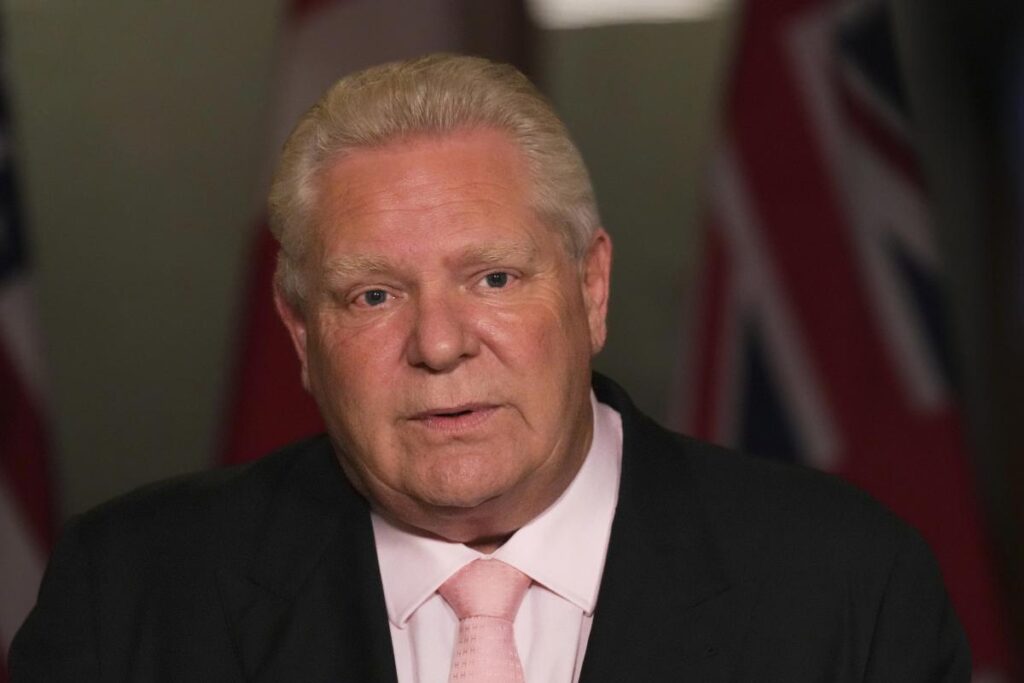In a significant response to potential U.S. tariffs under President-elect Donald Trump, Ontario Premier Doug Ford declared on Wednesday that Canada would consider cutting off energy supplies to the United States. Trump’s proposed 25% tariffs on all imports from Canada and Mexico have instigated this tough stance, which Ford emphasized would be a collective decision among provinces. He characterized the impending trade confrontation as unavoidable, expressing skepticism about Canada’s ability to avert tariffs once Trump assumes office on January 20, or January 21. Ford lamented the situation, highlighting the irony of conflicts arising between long-time allies and neighbors.
Ford pointed out the importance of Canadian energy exports to the U.S., stating that around 60% of U.S. crude oil imports and 85% of electricity imports come from Canada. Although his comments primarily pertained to Ontario, Grace Lee, his spokesperson, indicated that discussions with Prime Minister Justin Trudeau and other premiers had taken place regarding potential energy cuts. Indeed, Ontario plays a critical role in supplying electricity to various U.S. states, and any disruption could have vast repercussions on both sides of the border. Ford emphasized that Ontario alone provided power to 1.5 million homes in the U.S. in 2023, underlining the interdependence of the two nations.
As the situation develops, Deputy Prime Minister Chrystia Freeland echoed Ford’s sentiment, affirming that Canada would take strong measures in response to any unjustified tariffs. She confirmed that various sectors, including critical minerals supplied to the U.S., were part of the discussions during the meeting with provincial premiers. Freeland’s remark about “other ideas” hints at a broader strategy, reinforcing that energy exports could indeed be on the table. This potential response is particularly relevant given that energy constitutes nearly a third of Canada’s total trade with the U.S., a critical component for both economies.
Discussions around retaliatory measures become even more pressing in light of the economic implications of the proposed tariffs. Experts warn that U.S. consumers would face significant price increases for numerous goods ranging from food to automobiles, as companies would likely pass added costs onto shoppers. The Produce Distributors Association, for example, has cautioned that tariffs could lead to higher prices for fresh produce while adversely impacting U.S. farmers. On the Canadian side, responding in kind to earlier U.S. tariffs imposed on Canadian steel and aluminum underscores the tit-for-tat nature of trade relations between the two countries.
The Bank of Canada reacted to these developments by lowering its key interest rate, identifying Trump’s tariff threats as a substantial source of uncertainty impacting the economy. Bank Governor Tiff Macklem emphasized the unpredictability surrounding the implementation of tariffs, exemptions, and potential retaliatory measures. This situation reflects broader concerns about economic stability in both nations amidst fluctuating trade dynamics. The looming tariffs are also situated against a backdrop of concerns that both countries may find it challenging to sustain their historically strong trading relationship.
The political rhetoric surrounding these trade tensions has intensified, with Trudeau’s comments regarding the U.S. elections coming under scrutiny. Citing the lack of a female U.S. president as a setback for progress on women’s rights, Trudeau’s remarks elicited criticism from figures like Elon Musk and even from Premier Ford. This evolving narrative signals how the trade conflict may be entwined with broader political sentiments, illustrating the complex web of geopolitics and interdependence that characterizes U.S.-Canada relations. The forthcoming months are likely to reveal the strategies Canada will employ to counteract potential tariffs and protect its economic interests.

